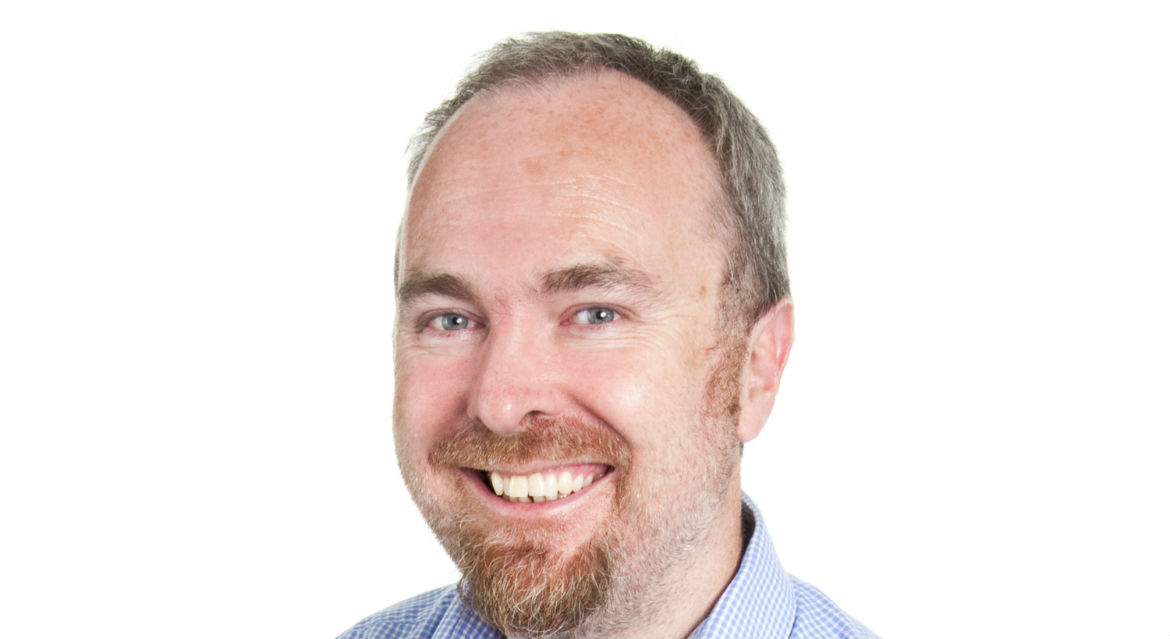£7m to establish Scotland-India partnership to tackle diabetes
Published On Fri 14 Jul 2017 by Roddy Isles

The University of Dundee has been awarded a £7million grant from the National Institute of Health Research Global Health programme to establish a major new Scotland-India clinical partnership to combat diabetes.
The NIHR Global Health Research Unit on Diabetes Outcomes Research project will see Dundee’s world leading expertise in the use of medical records to deliver improved care in diabetes `twinned’ with the large patient data set (covering over 400,000 Indian diabetic patients) collected by Dr Mohan’s Diabetes Specialities Centres, the largest clinical network of diabetes care in India.
Diabetes in India and Scotland will be compared and contrasted to determine the common and specific problems in both countries, with the aim of providing an improvement in health and reduction in health inequalities in India and Scotland.
The Dundee project is one of 33 research units and groups sharing over £120 million of funding for Global Health Research announced today by the Department of Health.
“Diabetes is a major problem in India with 1 in 12 people affected, amounting to 69 million individuals currently, which is more than the entire UK population,” said Professor Colin Palmer, Chair of Pharmacogenomics at the University of Dundee and lead for the new research unit.
“With increasing economic development and lifestyle changes those numbers are rapidly increasing.
“Yet current knowledge on how diabetes develops, how patients respond to medications and the causes of medical complications that arise are largely derived from studies on white European ancestry populations. This is despite the fact that diabetes in Europeans is very different to diabetes in South Asians.
“We need to understand more about diabetes in different populations. There is an urgent need for a large in-depth study of the specific causes and consequences of diabetes in India in order to identify different subtypes of diabetes that exist in India and understand how best to manage each subtype.
“This project will address that. It will also look at new ways of providing diabetes screening, using smartphone technology and retinal scans, which will provide valuable insights into how we can deliver more cost-effective and affordable diagnosis and treatment of diabetes, which is an issue here in the UK and around the world.”
“People in Scotland can contribute directly to this research by signing up to SHARE on www.registerforshare.org. Nearly 170,000 people have already signed up to SHARE to date and are helping diabetes research in Scotland.”
Professor Palmer and colleagues in Dundee will work with Dr V. Mohan and his team in Chennai.
The project commands access to two of the most advanced diabetes management systems in the world: the Scottish Clinical Care Information- Diabetes Care (SCI-DC), which provides a sophisticated shared electronic patient record for every individual with type 2 diabetes in Scotland, and the Dr Mohan’s Speciality Diabetes Centres. Together they hold clinical datasets collected in both Scotland and India, amounting in total to over 650,000 patients with diabetes with continuous data spanning over 20 years.
Working with Dr Mohan’s team, the project will also examine the potential for delivering next-generation telemedicine for diabetes screening in the rural communities and deprived urban areas of Chennai.
The University of Dundee is an internationally recognised centre of excellence in diabetes research, hosting over 20 research groups that include some of the world’s most cited scientists.
“Professor Sir Mark Walport, the current Government Chief Scientific Adviser (GCSA) and Head of the Government Office for Science, said when he was with the Wellcome Trust that `If you live in Dundee and suffer from diabetes, you have been participating in a medical revolution’,” said Professor Palmer.
“It is this revolution that we wish to progress with partners in India.”
The project will gather the next generation of postdoctoral analysts to bring big-data concepts into clinical utility and will initiate a PhD programme which will see students recruited from the top Universities in India, and will be selected by a joint Dundee/Chennai team including the two directors.
Making the funding announcement today, Health Minister Lord O’Shaughnessy said, “This funding allows our universities to strengthen their research and expertise as a leader in Global Health Research.
“The UK will continue to be at the forefront of health knowledge, and it is only right that we support developing nations as they improve care for patients and public.”
Part of the wider Official Developmental Assistance (ODA) budget, the aim of this research is to improve the health of patients and public in low and middle-income countries. Such research is vital to protect the UK at home. Disease knows no borders, and we are continually under threat from poorly understood infections and antimicrobial resistance. Good health is a global endeavour and the UK is a leader in this area of research and innovation.
Notes to Editors
The National Institute for Health Research (NIHR): improving the health and wealth of the nation through research. Established by the Department of Health, the NIHR:
· funds high quality research to improve health
· trains and supports health researchers
· provides world-class research facilities
· works with the life sciences industry and charities to benefit all
· involves patients and the public at every step
For further information, visit the NIHR website (www.nihr.ac.uk).
This call for research was commissioned by the National Institute of Health Research using Official Development Assistance (ODA) funding. The views expressed in this publication are those of the author(s) and not necessarily those of the NHS, the National Institute for Health Research or the Department of Health.
For media enquiries contact:
Roddy Isles
Head of Corporate Communications
University of Dundee
Nethergate, Dundee, DD1 4HN
Tel: +44 (0)1382 384910
Mobile: 07800 581902
Email: r.isles@dundee.ac.uk